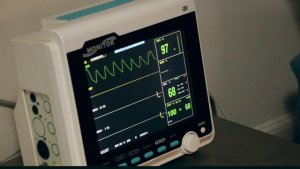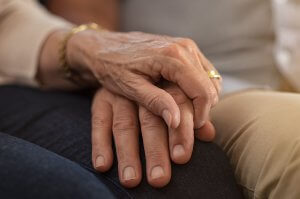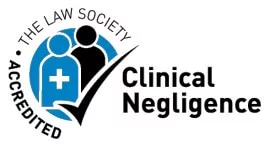Cardiac Negligence Claims
Claim Compensation for Heart Condition Misdiagnosis & Treatment Errors
Cardiology negligence refers to situations when medical professionals give a substandard level of care when treating and managing heart conditions. If you’ve suffered because of cardiology negligence, you may be able to claim compensation.

“Osbornes Law is an established firm which handles a breadth of complex and high-value clinical negligence matters.”

“The team frequently represents claimants in complex disputes, involving hypertensions, as well as inadequate treatment of heart and blood diseases.”
- Heart conditions like heart attacks, arrhythmias, and angina require fast, accurate diagnosis and treatment.
- Delays, misdiagnosis or poor management can lead to serious, sometimes life-changing consequences.
- If you've suffered harm due to failings in cardiac care, you may be entitled to make a claim.
- Our solicitors specialise in cardiac negligence and act on a no win no fee basis in most cases.
- We can help you recover compensation for medical costs, rehabilitation, lost earnings and future care needs.
- To speak to one of our cardiac negligence solicitors, get in touch today for a free consultation.
Introduction to heart disease & cardiac claims
Heart disease remains one of the most significant health challenges in the UK, causing over 170,000 deaths each year and leaving many more people living with long-term disability. When cardiology specialists fail to diagnose or treating heart conditions, the consequences can be devastating. Cardiac claims arise when patients suffer avoidable harm due to negligence, such as
- Delayed diagnosis and misdiagnosis of cardiac conditions
- Poor management of conditions like myocardial infarction, heart failure and coronary heart disease.
- Incorrect medication or dosage
- Inadequate monitoring after surgery or discharge
- Failure to act on test results or warning signs or abnormal vital signs
- Inappropriate treatment, such as mismanagement or incorrect interventions, which can worsen a patient’s condition and lead to further harm
If you or a loved one has experienced negligent cardiac treatment resulting in serious health problems, you may be entitled to make a cardiac compensation claim. Seeking compensation can help you access the support and treatment you need to move forward after suffering from heart disease or related cardiac conditions.
How does negligence occur in relation to common heart conditions?
Early diagnosis and treatment are vital for heart conditions. Negligence can have devastating consequences in cases such as:
- Stroke – Delay in recognising or treating a stroke.
- Heart attack – Missed warning signs or slow emergency response. Read our blog post: misdiagnosis of heart problems
- Arrhythmias – Failure to monitor or treat abnormal heart rhythms.
- Heart failure – Poor ongoing management.
- Endocarditis – Delayed diagnosis of this serious infection can cause severe complications.
- Angina – Misinterpreting chest pain can mean missed chances to prevent a heart attack.
- High blood pressure (hypertension) – This condition is sometimes misdiagnosed, increasing the risk of heart attack or stroke if left untreated.
- Blood clot – Failure to diagnose or treat a blood clot can result in heart attacks, strokes, or other serious complications
Gathering evidence for your cardiac negligence claim
Building a strong cardiac negligence claim depends on collecting clear and comprehensive evidence to show what went wrong and how it has affected you.
- Medical records – These are the foundation of your case. They provide details of your diagnosis, the treatment you received, and any potential errors or omissions made by healthcare professionals.
- Witness statements – Accounts from family members, friends, or healthcare staff can offer valuable insight into your symptoms, the care you received, and how the incident has impacted your daily life.
- Independent medical experts – Opinions from cardiologists or other specialists are often needed to confirm that the treatment you received did not meet acceptable medical standards.
Together, this evidence helps to demonstrate that substandard care led to avoidable harm, laying the groundwork for a successful cardiac negligence claim.
Making a cardiac negligence claim
If you or a loved one has suffered due to mistakes in the diagnosis, treatment, or management of a heart condition, you may have grounds for a cardiac negligence claim.
To succeed, you will need to show:
- That the care you received fell below the standard expected of a competent medical professional; and
- That this failure directly caused you harm or made your condition worse.
Need advice on another type of medical negligence?
If your situation involves a different kind of misdiagnosis or clinical error, our medical negligence solicitors can help. We handle a wide range of claims, including surgical errors, cancer misdiagnosis, and birth injuries.
How much compensation can I get for a cardiology negligence claim?
The amount of compensation you could receive will depend on the severity of your health problems, their impact on your life, and any financial losses you have incurred.
As cardiac negligence specialists, our solicitors understand how cardiac claims are valued. We work quickly to assess your rehabilitation needs, your financial losses, and any support you may need in the future. Compensation can go towards covering expenses such as:
- Wages lost through additional surgery or extended recuperation time
- Lost earnings and loss of future earning potential
- Heart related treatment costs and cardiologist fees
- Heart related rehabilitation
- The cost of specialist equipment or heart medications
- Mobility aids and personal care
Real life examples of cardiac negligence claim
- Osbornes Law secured £900,000 for a man left paralysed after carers missed 142 visits, causing him to miss stroke medication and suffer a life-changing stroke. Find out more here.
- Osbornes Law secured compensation for a man misdiagnosed with asthma despite heart attack symptoms, leading to delayed treatment and permanent heart damage. Find out more here.
- Osbornes Law secured justice for a family after hospital failures led to a fatal missed diagnosis of aortic dissection, resulting in a fatal negligence claim. Find out more here.
- Nicholas Leahy secured a five-figure settlement for a client after delays in diagnosing a heart attack led to avoidable heart damage and lasting symptoms.
Why choose Osbornes Law?
At Osbornes Law, our experienced cardiology negligence solicitors will:
- Review your medical records with independent experts
- Advise you clearly on the strength of your case
- Handle all communication with the NHS or private providers
- Seek compensation for pain, suffering, loss of earnings, care needs, and future treatment
We act on a no win, no fee basis in most cardiology claims, and we understand how distressing these experiences can be. If you think that you or a loved one has suffered due to cardiac negligence, get in touch with our specialist team. We are here to help.
To speak with one of our solicitors, contact us by:
- Filling in our online enquiry form; or
- Calling us on 020 7485 8811
Contact us about a Cardiac Claim
Call us 020 7485 8811
Email us Send us an email and we’ll get back to you
Client StoriesVIEW ALL
- 4.2.2025
Claim Settled for Child’s Surgery Injuries
Osbornes secures settlement for child’s surgery-related injuries Osbornes Law successfully represented a minor, X, in a claim against two...
Read more - 4.1.2022
Five-figure Compensation for Cardiac Negligence
Cardiac Negligence Case Background Osbornes Law represented a 42-year-old Polish man who initially visited his local hospital’s Accident and...
Read more - 5.8.2021
Grandfather receives £900,000 after stroke misdiagnosis
Osbornes secure settlement for stroke claim Our medical negligence solicitors advised a grandfather who suffered a devastating stroke after carers...
Read more - 13.7.2021
Heart Failure Claim Against NHS Trust
Claim against Epsom & St Helier University Hospitals NHS Trust Nick Leahy, medical negligence solicitor at Osbornes Law was instructed...
Read more - 14.1.2020
Misdiagnosis of heart problems
Failure to diagnose heart problems – education is the key Our hearts are the pumps that keep us alive by pushing...
Read more - 13.8.2019
CQC finds long delays at Royal Cornwall Hospitals
A report from inspectors at the Care Quality Commission (CQC) has revealed that patients who have had to wait too...
Read more - 17.4.2017
Can A New Blood Test Diagnose Heart Attacks...
It has been recently reported that new research has developed new blood tests to diagnose heart attacks. The British Heart...
Read more
Osbornes Law offers experience in obstetric and fatal claims as well as niche cauda equina cases.
The team has particular expertise in cases stemming from delays in diagnosis as well as surgical injury and wrongful birth claims.
Osbornes Law is an established firm which handles a breadth of complex and high-value clinical negligence matters.
They are a very tight team. They're very friendly, helpful and obtain excellent results for clients.
A quality firm of solicitors with excellence at all levels of the team.
They know the law inside out and proactively work with counsel to drive cases forward. They are a go-to for complex claims.
Osbornes handles a wide range of high-value and complex clinical negligence cases, with particular expertise in birth injury, delayed cancer diagnosis, spinal injury, and fatal claims.
I am always happy to get instructions from Osbornes. They have excellent quality work, the team knows exactly what they are doing and are a real pleasure to work with. Excellent legal knowledge.
The team has excellent leadership and provide an above and beyond service for their clients.
A close knit team with excellent knowledge and technical acumen across the board.
You get a real sense that they care about clients and each other, working together to get the best results.
The team works very well together as they are genuinely kind and friendly people.
Osbornes are always professional and diligent in respect of their clients.
Osbornes has an excellent depth of experience across the team.
Across the board, they are all a pleasure to work with. They always keep a pragmatic head and all have an eye on the best outcome for the client.
Small but very effective and experienced team so every client benefits from the personal touch but also highly skilled litigation know-how. Capability of the team means they can handle all aspects of very complex cases as well as straightforward matters.
The team frequently represents claimants in complex cognitive and spinal injury disputes, involving hypertensions, spinal fractures, as well as inadequate treatment of heart and blood diseases.
Osbornes has a skilled team of solicitors advising clients on a wide range of clinical negligence matters.
Hard working, approachable, good knowledge of clinical negligence and clients’ specific conditions
A joy to work with and always 100% client focused at all times.
The clinical negligence team at Osbornes is much lauded for its ability to ‘represent the diverse range of London-based clients
‘They are ambitious for their clients and expect high standards from all who work with them.’
"Osbornes somehow combine the accessibility of a local firm, with the professional standards of a national or city outfit."
"Osbornes, is described as having ‘superb judgement and a medical knowledge that is second to none."
Stephanie has developed a particularly strong reputation for her handling of birth injury claims, as well as cases concerning surgical negligence and delays in surgery.
"An excellent firm which achieves fantastic outcomes for clients."
"Stephanie Prior takes on complex cases and gets excellent results. She has a background in medicine which serves her clients well and is a realistic but tough litigator."
"Stephanie Prior is hugely dedicated, adored by her clients, tenacious, efficient and extremely knowledgeable."
"Stephanie Prior is very good with troubled clients and is easily able to make them feel at ease."
"Stephanie shows sensitivity and deals with things in an understanding way."
Osbornes provides a very intimate and personal client service which is increasingly rare in this sector.
The lawyers in the team are highly experienced and will drive cases very hard on behalf of their clients.
"Stephanie Prior has a realistic attitude to the complexities of the cases. She wins the trust of her clients and goes the extra mile to ensure they get the best outcomes."
"Stephanie Prior... manages a varied caseload, including obstetric claims, child and adult brain injury cases and fatal and non-fatal spinal cord injury cases."
"Stephanie is experienced, knowledgeable of all aspects of clinical negligence work, and strategic in running cases."
"The team were extremely professional in putting my needs first. There was a joined-up approach to catering for the client, and all lawyers involved were briefed and constructive."
Stephanie Prior is always very professional and kind. Highly recommended.
Quite simply excellent, with a highly competent and well-rounded team. They understand complex medical litigation and have been our lifesavers, and we will always owe them our immense gratitude.
Our Medical Negligence Team View the whole team
Rob Aylott
Partner
Personal Injury SolicitorsHugh Johnson
Partner
Medical NegligenceJodi Newton
Partner
Medical NegligenceBen Posford
Partner
Personal Injury SolicitorsLaura Swaine
Partner
Personal Injury SolicitorsVictoria Ayton
Paralegal
Medical NegligenceElline Demetriou
Associate
Medical NegligenceHannah Emerson
Solicitor
Medical NegligenceBelen Junqueira
Paralegal
Medical NegligenceNicholas Leahy
Senior Associate
Medical NegligenceView the
whole team













